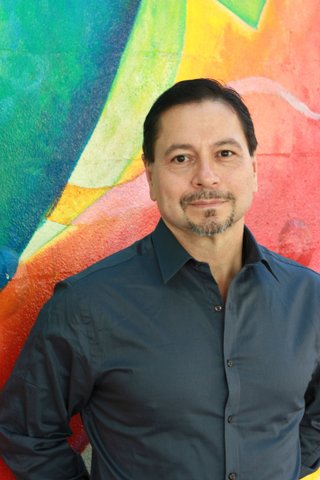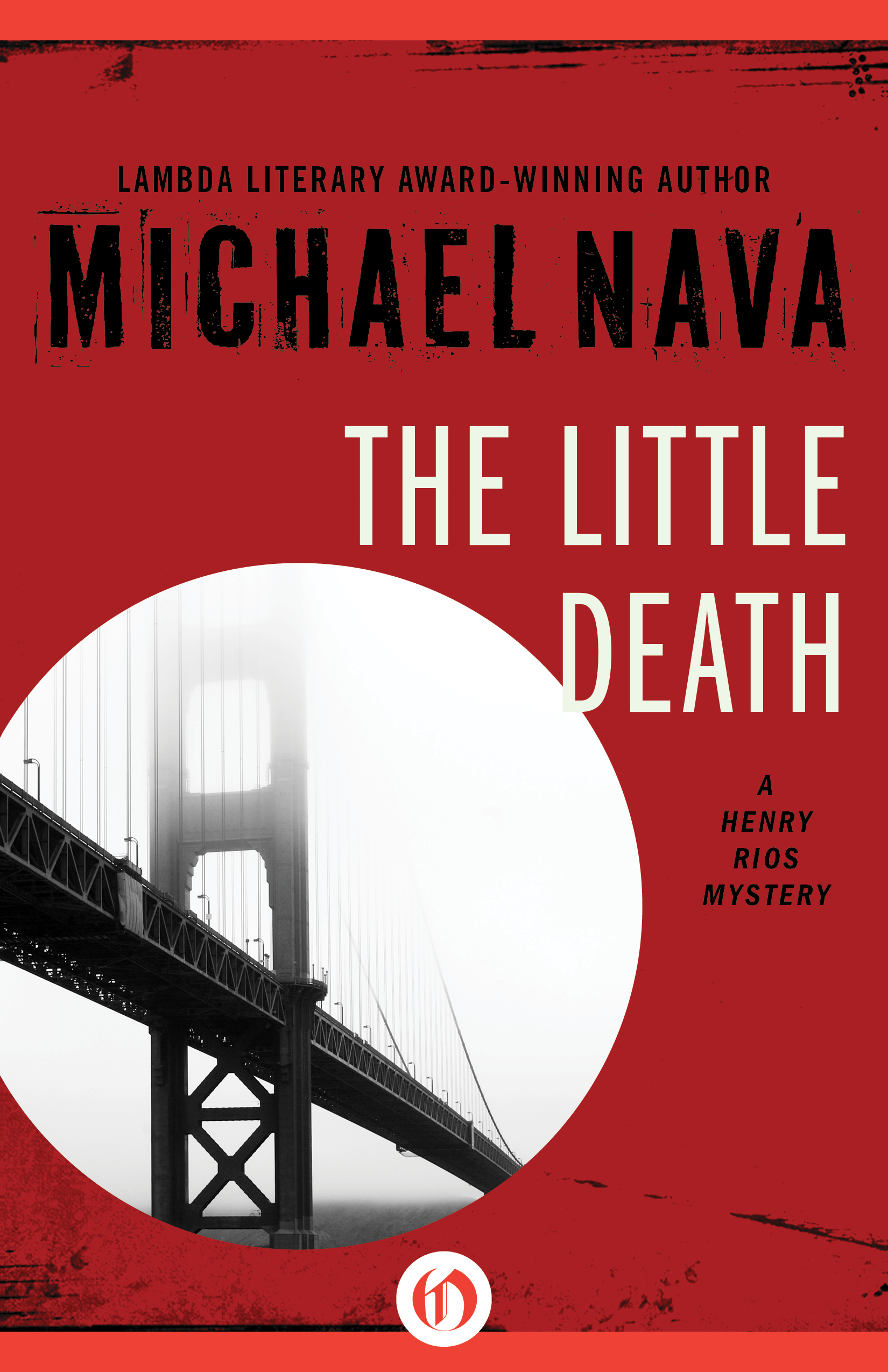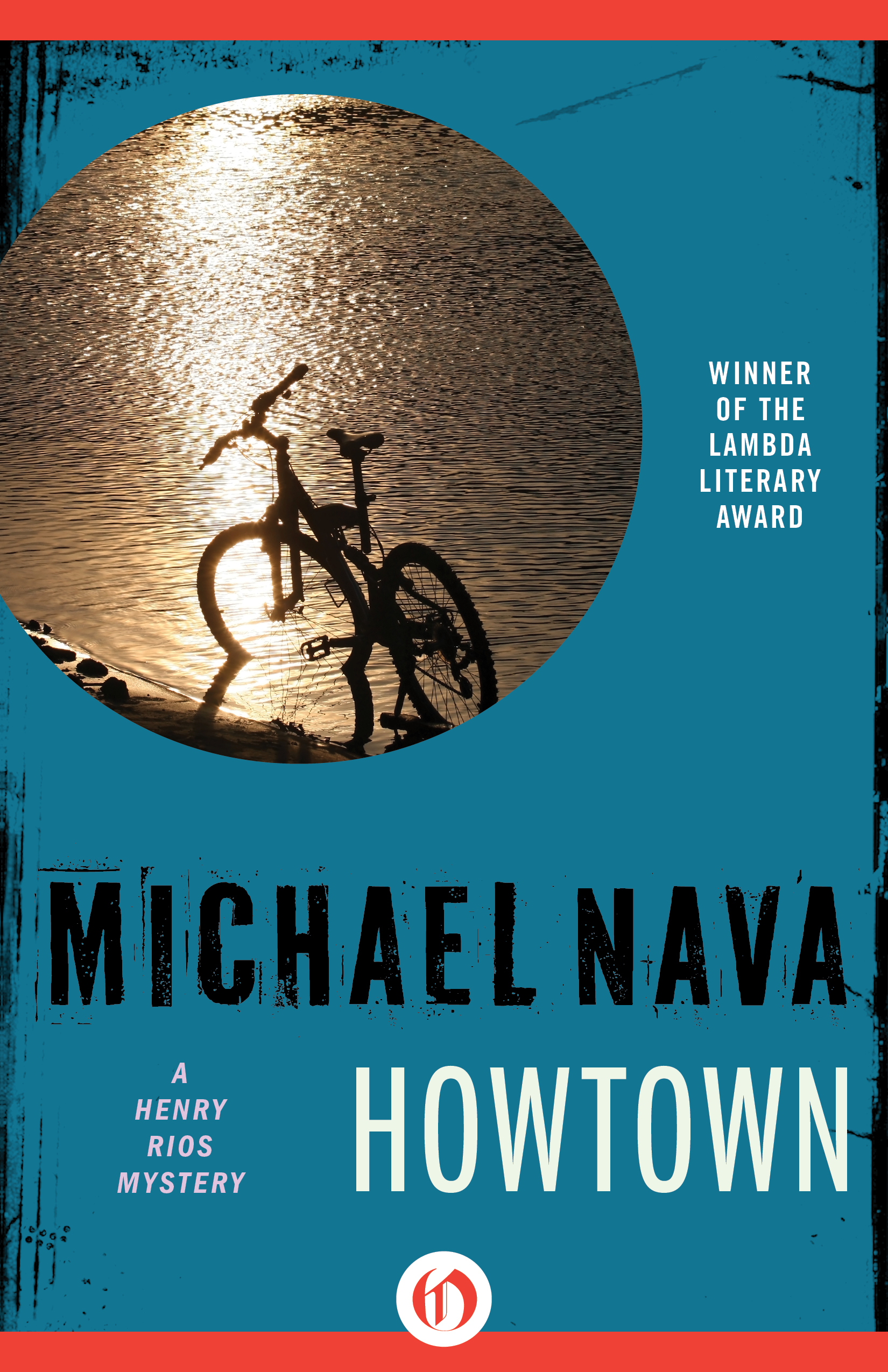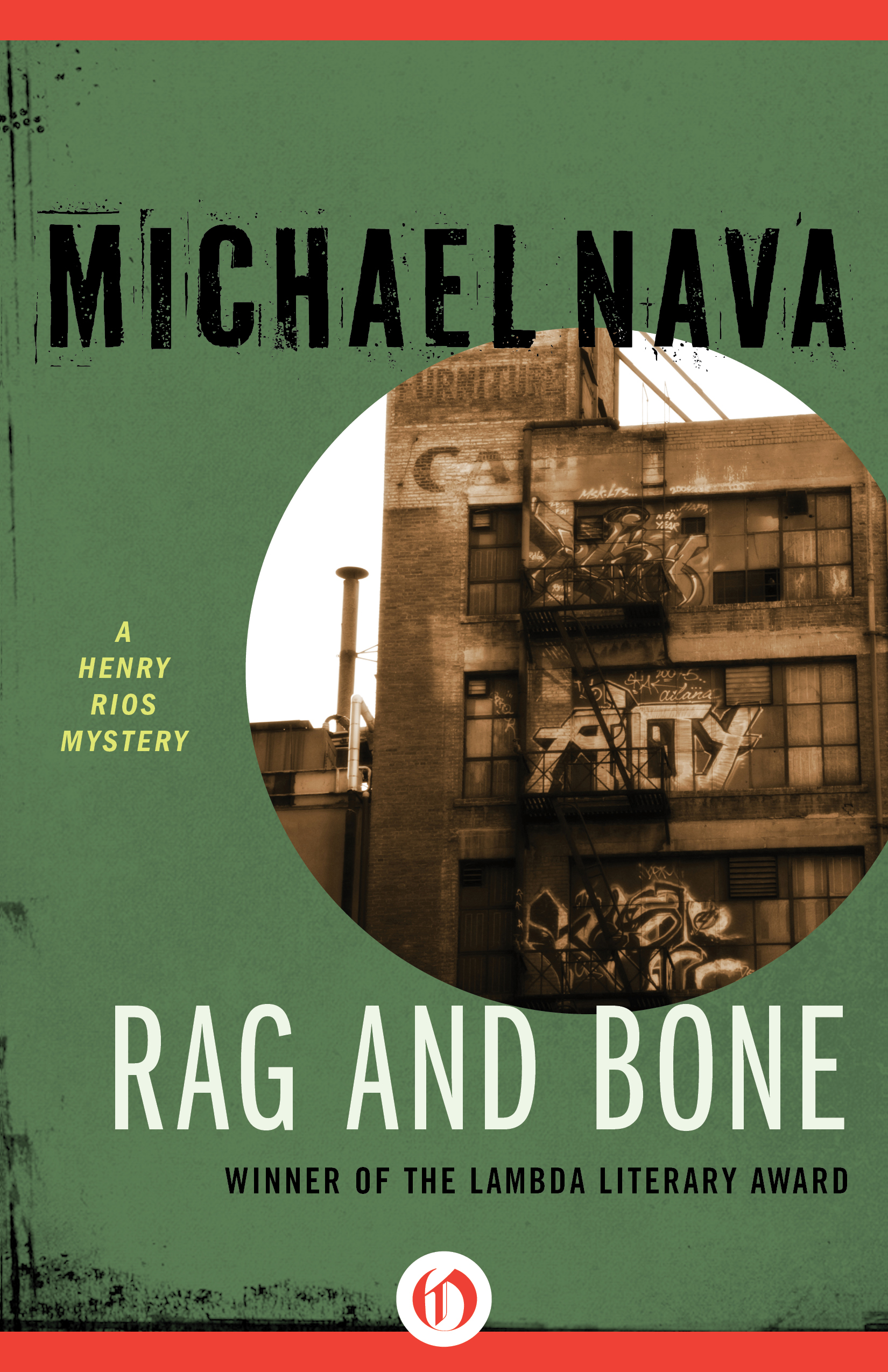
The following is an excerpt from an interview with author Michael Nava. For the complete interview, please visit KerganEdwards-Stout.com.
In 1986 the United States looked very different than it does today. Ronald Reagan was president. It was the year of the Space Shuttle Challenger disaster and the blockbuster film Top Gun. LGBT people were largely marginalized. Latinos hadn't yet become a surging political force. And while AIDS had begun claiming countless lives in the gay community, it was only in 1985 that the larger public became more fully aware, due to the sensationalized death of star Rock Hudson.

The Rios series would win five Lambda Literary Awards, and Nava was honored by The Publishing Triangle with the Bill Whitehead Lifetime Achievement Award for Gay and Lesbian literature.
As the revolutionary Henry Rios series finally comes to ebook, Michael Nava took time to share more with me about the development of the character, his thoughts on bringing an end to the Rios series, and his forthcoming novel, The City of Palaces.
Kergan Edwards-Stout: You first gained literary acclaim for your Henry Rios mystery series. How did the tales originate?
Michael Nava: I started writing the first novel almost as a lark in my last year at law school. I was working from 10 p.m. to 6 a.m. at the Palo Alto jail, where I interviewed men who had been arrested to determine if they were eligible for immediate release on their own recognizance or would have to post bail the next day. Palo Alto didn't have that much crime, so I spent many nights just waiting around or trying to study. At some point I started writing what became The Little Death; indeed the very first scene has Rios walking into a jail which was the Palo Alto jail.
 Edwards-Stout: Your lead character, a gay, Latino criminal attorney involved in solving mysteries, broke many barriers. Were you conscious of how groundbreaking he might be?
Edwards-Stout: Your lead character, a gay, Latino criminal attorney involved in solving mysteries, broke many barriers. Were you conscious of how groundbreaking he might be?
Nava: At that point I wasn't thinking about being published, much less writing a series, but it never occurred to me that he would not be gay and Latino. I wanted to write a book I would have wanted to read, and what I wanted to read about was the experience of being gay. This was in 1980, when there were very few books by openly gay writers, and most of those involved the New York sexual demi-monde or were coming-out stories. I was already out, and I was less interested in gay sex than in gay identity. Fortunately, I found inspiration in the marvelous mystery novels of Joseph Hansen.
Edwards-Stout: His books were terrific.
Nava: His matter-of-fact depiction of a gay P.I. Dave Brandstetter, who was competent at his job and unapologetic in his sexual orientation, was my immediate inspiration for Rios.
Edwards-Stout: I recently revisited Golden Boy, the second in your series. I remember, when I first read the books, I was focused more on how you married the mystery angle with a gay, Latino lead. What struck me about the book, reading it this time, was how Rios navigates through the class system. He interacts with everyone from the uppermost elite to folks on the street. Were you conscious of that element while writing him?
Nava: Perhaps not so much in that second book, but by the third book, How Town, I was increasingly conscious of his status which I call the "outsider/insider." This person -- male in my novels, but, in life, just as often, or more often, a woman -- is someone who belongs to a dispossessed minority group but who nonetheless achieves some degree of status and authority within the dominant culture.
 Edwards-Stout: Can you expand on that?
Edwards-Stout: Can you expand on that?
Nava: Henry Rios, for example, is a gay Latino (and also a recovering alcoholic and a child of the poor) who is also a first-rate lawyer with a law degree from Stanford University. The Rios novels are as much about how Rios experienced his double reality (despised spic faggot on the one hand, learned counsel for the defense on the other) as they are about whodunit and why. That's what gives the novels their continuing moral and cultural relevance. As America's complexion darkens, there are many young men and women from "minority" communities, particularly Latino and Asian kids, who are confronted with the doubleness of identity. Like Rios, they are the first in their families to attend college and to gain a foothold in the professional world. And if these kids are LGBT as well, then Rios really speaks to their experience and, to gather from what they tell me, provides them with some hope and inspiration.
Edwards-Stout: In the series you also included various characters battling with HIV. How has the AIDS crisis affected you personally?
Nava: The first book was started in 1980, completed in 1984, and published in 1986 -- and readers will notice that AIDS is not mentioned. By the second book, Goldenboy, written in 1987 and published in 1988, AIDS was sweeping the gay male community, overwhelming every other concern. I could not write about that community without also becoming an AIDS writer. Like many other gay men of my generation -- I'm 58 now -- HIV/AIDS was the air I breathed for a decade: watching friends sicken and die, visiting hospital rooms, attending memorials, marching in demonstrations, raging at Ronald Reagan and his ilk and bearing witness to the unbelievable acts of compassion and heroism by gay men and by lesbian women. Gay male literature was like urgent dispatches from the front lines of a battleground, and it was my privilege to be part of that generation of writers. Like my brother writers, I tried to write about the plague as honestly and accurately as I could. I remember receiving a letter from a man who included in the envelope the program of his lover's memorial. He told me that when he read some of the conversations between Rios and his HIV-positive lover, Josh Mandel, it was as if I had recorded his conversations with his partner. He thanked me. I wept.
Edwards-Stout: How do you feel the LGBT community has dealt with AIDS in the years since the height of the epidemic?
Nava: Well, it was very odd that when antiretroviral therapies became widely available and gay men stopped dying in the numbers that they had, people stopped talking about AIDS. I felt like a soldier who had returned from the trenches of the Great War to find the Roaring '20s in progress, all jazz and flappers and bathtub gin and no one wanting to hear about the horror anymore. It was a deeply alienating experience, and for some time I withdrew from the LGBT community. In retrospect, I suppose it was understandable that people just wanted a break from the trauma of the plague. But the plague years set in motion much of LGBT civil rights initiatives that are bearing fruit now; it empowered us as only a life-and-death crisis can. I think we need to look back at that time, and I see signs that we are at last prepared to do that. Like many other men of my generation, I do find disturbing the increase of seroconversion among younger gay men. HIV may be a more manageable disease, but it's better not to contract it in the first place.
 Edwards-Stout: You brought the Henry Rios series to a close with Rag and Bone in 2001. The character at that time was battling a host of issues around mortality, identity and family. When the book was released, you noted that not only would it bring an end to his tales, but it was also the end of your journey as a writer of mysteries. Why was closing his tale so important to you, and how does that coincide with your decision to no longer work in that genre?
Edwards-Stout: You brought the Henry Rios series to a close with Rag and Bone in 2001. The character at that time was battling a host of issues around mortality, identity and family. When the book was released, you noted that not only would it bring an end to his tales, but it was also the end of your journey as a writer of mysteries. Why was closing his tale so important to you, and how does that coincide with your decision to no longer work in that genre?
Nava: There were a number of things going on. I'd written or co-written eight books in 15 years while also writing essays, journalism and other pieces, while simultaneously practicing law full-time and attempting to have a personal life. The well was dry. I also felt I had gone as far as I could as a writer with the mystery genre, and that I was in danger of becoming formulaic. Moreover, I didn't have much else to say about the experience of being a gay man, and I found myself increasingly more interested in exploring the Latino part of my personal identity. I had already begun the research for the series of historical novels that I am currently writing, and that was where I wanted to go as a writer. I didn't realize it would take me another decade to write the first novel in that series.
Edwards-Stout: Do you have any regrets about ending it?
Nava: None at all.
Edwards-Stout: With the series now being released in ebook, how does it feel to revisit them?
Nava: What I see most clearly now is that Henry Rios is a unique character in American literature, in both his specificity -- gay, Mexican-American, professional man -- and in his sensibility. He is neither a victim nor a stereotype. He is someone who rejected society's classification of homosexuals as sick, sinful or criminal and chose instead to trust his own experience of himself as a decent and compassionate human being. That doesn't sound like a radical consciousness today, but you must remember when Rios was a boy in the 1950s and 1960s, there was still a sodomy law in California, and no open homosexual would have been licensed to practice law; homosexuals were defendants, not lawyers. His faith in his own good character was without precedent. He paid a price. In the novels he struggles with alcoholism, with a tendency toward what I suppose is codependence, with his unexpressed rage, but his demons never overwhelm him. He is a wounded but sympathetic character. I think that's why so many readers took him to heart.
This piece originally appeared in full on KerganEdwards-Stout.com.
